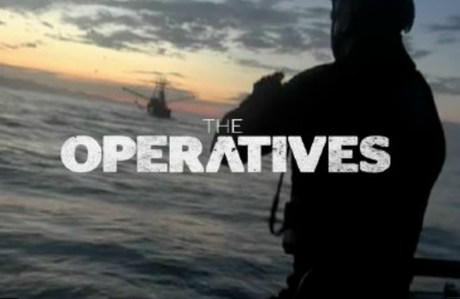by Todd Woody / Exposing the Big Game

some remote locale to do battle with poachers and other environmental evildoers.
Which he is.
The 49-year-old tattooed New Zealander leads a team of conservationist commandos in The Operatives, a new television series that premieres Sunday on Pivot, the television network owned by Participant Media, TakePart’s parent company.
Bethune gained fame in 2010 when he commanded the Ady Gill, a high-tech trimaran that was part of a Sea Shepherd fleet trying to stop Japanese whaling ships in the Southern Ocean. A Japanese boat rammed the Ady Gill, and when Bethune boarded the whaler he was arrested. Taken to Japan, Bethune was jailed for five months before being released and deported.
Now he’s back with a team that travels the world to confront eco-villains poaching protected wildlife, fishing in marine sanctuaries, and illegally mining for gold in rainforests home to endangered animals such as the jaguar.
“We got environmental criminals pillaging the world as we speak, and we’re going to take them on,” says Bethune.
He calls it “extreme conservation.”
The first episode of The Operatives takes the team to the West African country of Namibia, where local men club to death more than 80,000 baby Cape fur seals each year.
The Namibian government claims the seal cull is needed to protect fish stocks. But environmentalists argue there’s another motive: The pelts of the dead seal pups are exported to make clothing.
In 2006, for instance, Namibia set the cull quota at 85,000 seals, according to the International Union for Conservation of Nature.
“This high harvest level has been retained despite several years with very high mortality levels for pups along with many thousands of adult deaths in Namibia,” the IUCN states in a report.
Namibia and Canada are the only countries that permit the clubbing to death of baby seals.
Environmentalists estimate that the fur trade brings at most $500,000 to Namibia. Tourism, on the other hand, is worth $681 million annually, according to the government. Among the attractions that lure tourists: the country’s wildlife, including fur seals.
To Kill or Not to Kill? New Hope in the Fight to Save Baby Seals
While the IUCN says that there have been reports that fur seals have had some impact on fishing, it noted that many seals also die after being entangled in fishing lines or are illegally shot by fishermen.
In the first The Operatives episode, Bethune and his team travel overland from South Africa to Namibia. They take an inflatable boat down the coast under cover of darkness and then swim to shore through shark-infested waters. Why the subterfuge? The cull they want to document is taking place on the site of a diamond mine, and the operatives must sneak onto the beach and avoid capture to film the carnage.

